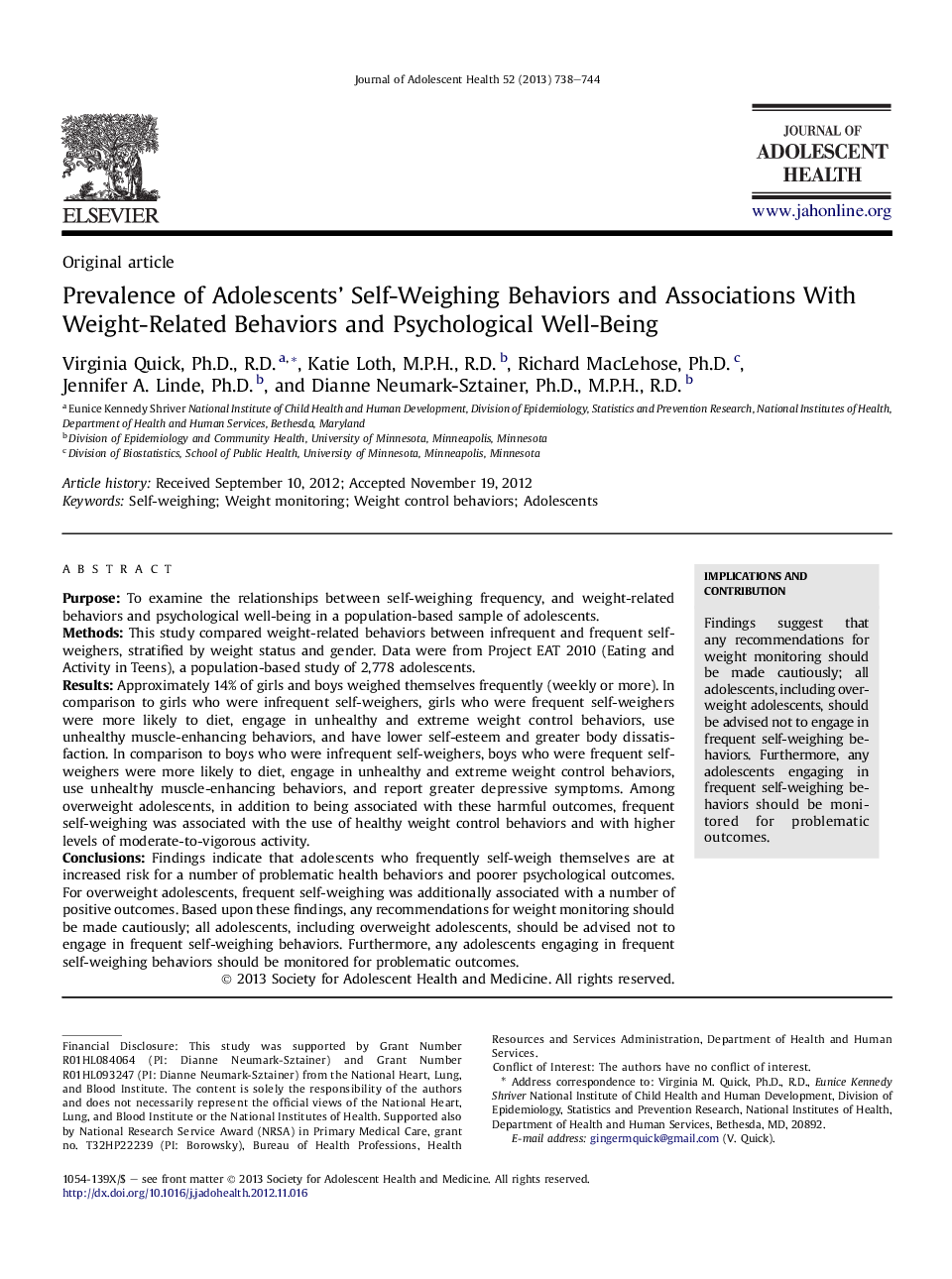| Article ID | Journal | Published Year | Pages | File Type |
|---|---|---|---|---|
| 1078231 | Journal of Adolescent Health | 2013 | 7 Pages |
PurposeTo examine the relationships between self-weighing frequency, and weight-related behaviors and psychological well-being in a population-based sample of adolescents.MethodsThis study compared weight-related behaviors between infrequent and frequent self-weighers, stratified by weight status and gender. Data were from Project EAT 2010 (Eating and Activity in Teens), a population-based study of 2,778 adolescents.ResultsApproximately 14% of girls and boys weighed themselves frequently (weekly or more). In comparison to girls who were infrequent self-weighers, girls who were frequent self-weighers were more likely to diet, engage in unhealthy and extreme weight control behaviors, use unhealthy muscle-enhancing behaviors, and have lower self-esteem and greater body dissatisfaction. In comparison to boys who were infrequent self-weighers, boys who were frequent self-weighers were more likely to diet, engage in unhealthy and extreme weight control behaviors, use unhealthy muscle-enhancing behaviors, and report greater depressive symptoms. Among overweight adolescents, in addition to being associated with these harmful outcomes, frequent self-weighing was associated with the use of healthy weight control behaviors and with higher levels of moderate-to-vigorous activity.ConclusionsFindings indicate that adolescents who frequently self-weigh themselves are at increased risk for a number of problematic health behaviors and poorer psychological outcomes. For overweight adolescents, frequent self-weighing was additionally associated with a number of positive outcomes. Based upon these findings, any recommendations for weight monitoring should be made cautiously; all adolescents, including overweight adolescents, should be advised not to engage in frequent self-weighing behaviors. Furthermore, any adolescents engaging in frequent self-weighing behaviors should be monitored for problematic outcomes.
